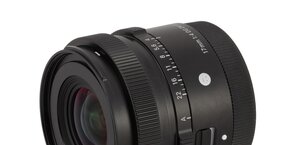Venus Optics LAOWA 100 mm f/2.8 2X Ultra Macro APO
8. Vignetting
| Canon 50D, f/2.8 | Canon 50D, f/4.0 |

|

|
At this point you don't notice almost any problems. Even at the maximum relative aperture vignetting remains moderate, amounting to 20% (-0.65 EV). Additionally, it disappears practically completely on stopping down the aperture to f/4.0 where we got 8% (-0.24 EV).
Please Support UsIf you enjoy our reviews and articles, and you want us to continue our work please, support our website by donating through PayPal. The funds are going to be used for paying our editorial team, renting servers, and equipping our testing studio; only that way we will be able to continue providing you interesting content for free. |
- - - - - - - - - - - - - - - - - - - - - - - - - - - - - - - - - - - - - - - - - - - - - - - -
Let's check how the situation changes after passing to full frame.
| Canon 5D MkIII, f/2.8 | Canon 5D MkIII, f/4.0 |

|

|
| Canon 5D MkIII, f/5.6 | Canon 5D MkIII, f/8.0 |

|

|
The results are noticeably higher. By f/2.8 you have to take into account light fall-off of 46% (−1.78 EV), a high value but comparable with the results reached by the rivals. It's enough to remind here that the Canon EF 100 mm f/2.8 L Macro IS USM had a result of 43% in this category and vignetting of the Samyang 100 mm f/2.8 ED UMC MACRO was even a bit higher, getting to 49%.
Fortunately stopping down improves the situation pretty fast. By f/4.0 brightness loss in frame corners reaches 24% (−0.80 EV), and by f/5.6 it's just 15% (−0.47 EV). Vignetting becomes practically imperceptible by f/8 and f/11, amounting to, respectively, 10% (−0.29 EV) and 5% (−0.16 EV).
| Canon 5D MkIII, JPEG, f/2.8 |
 |






